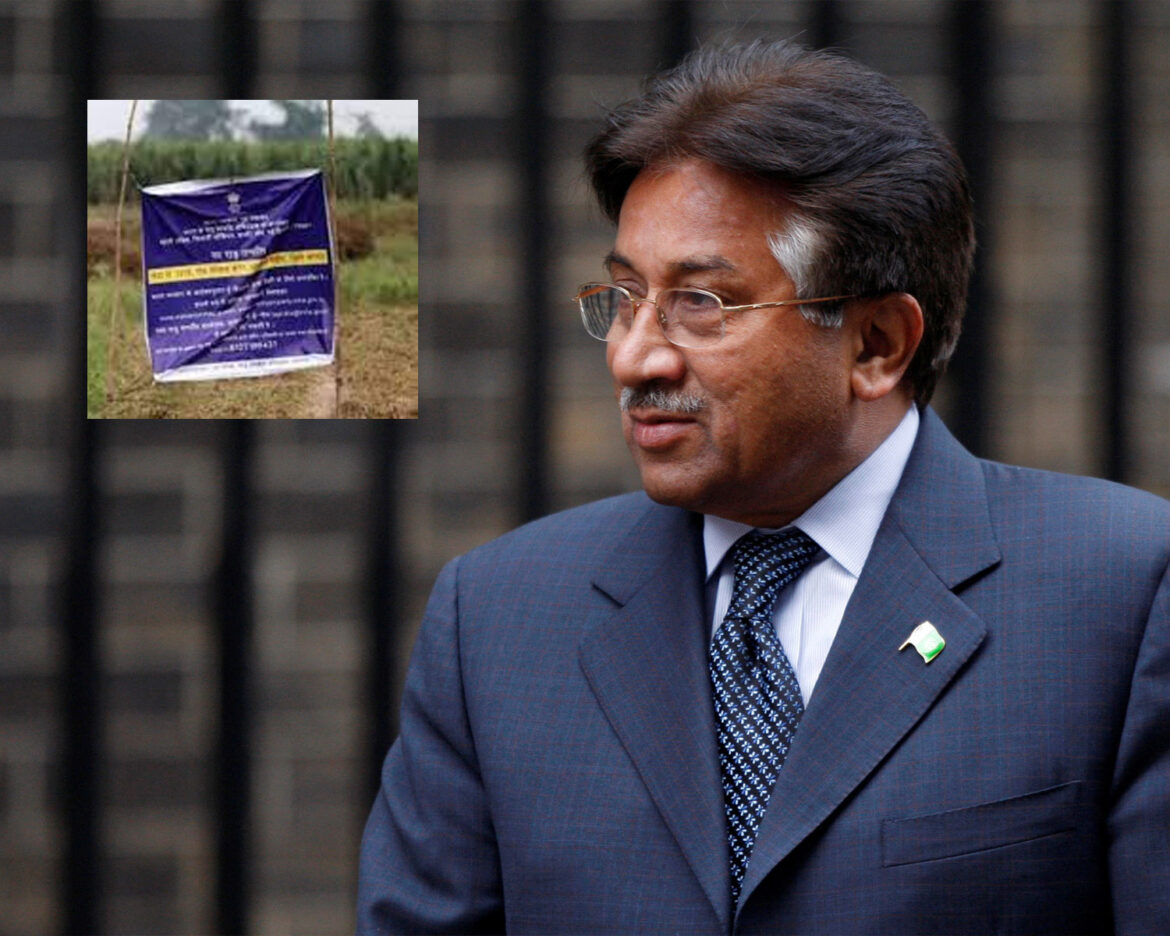A piece of land in northern India, formerly owned by the family of the late Pervez Musharraf, Pakistan’s former president and chief of army staff, is being auctioned under the Enemy Property Act, according to Indian media reports.
The property, located in Kotana Bangar village in Uttar Pradesh, spans over three hectares. The Indian Express reported that the land would be auctioned online, with the sale closing on September 12. This auction is taking place under the Enemy Property Act, a law that allows the Indian government to seize and sell properties owned by Pakistani nationals.
The origins of this legislation date back to 1962, during a period of heightened tensions between India and Pakistan. It was enacted to manage assets belonging to individuals who had opted for Pakistani citizenship following the Partition of India in 1947. Many such properties were left behind by those who migrated during this period, subsequently falling under the purview of the Enemy Property Act.
Local sources indicate that Musharraf’s ancestors lived in Kotana before the family moved to Pakistan after Partition. While their ancestral land remained in the village, Musharraf’s parents, Begum Zareen and Musharrafuddin, had ties to the area, marrying there before relocating to Delhi in 1943, where Pervez Musharraf was born.
Pervez Musharraf, who came to power in a military coup in 1999, served as Pakistan’s 10th president from 2001 to 2008. His rule was characterized by a strong alliance with the United States, especially during the war on terror. However, his tenure was marked by significant controversies, including the dismissal of judges and the imposition of martial law. His political career came to an end in 2008 after losing in the polls, leading to his resignation. In 2019, he was sentenced to death in absentia for treason.
In India, approximately 9,500 properties have been classified as ‘enemy properties,’ most belonging to Pakistani nationals from the time of the Indo-Pakistani wars. These assets are valued at over ₹1,04,339 crore (approximately $12.4 billion), as reported by PRS India, a New Delhi-based research organization.
In contrast, Pakistan established the Evacuee Trust to manage properties left behind by Indians who migrated during Partition. These properties were either used to settle Muslim refugees or sold to generate revenue, with religious sites being preserved under the trust.



